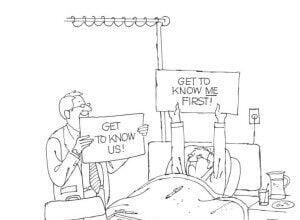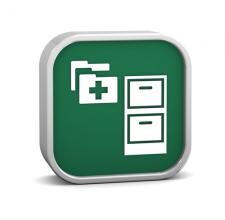Does the idea of visiting the doctor make you anxious? If so, you’re not alone, as many people report they don’t like medical appointments. All the screenings, exams, shots, blood work, and questioning are enough to make anyone uneasy. Your experience during your doctor’s visit adds to the stress and frustrations. From completing tons of paperwork and waiting forever to be seen to dealing with unfriendly employees and ineffective care, many factors can dramatically reduce the quality of care and service patients receive.
Fortunately, there are things patients can do to improve their experience during their next doctor’s visit. Continue reading for advice.
Go Beyond The Healthcare Provider
Most people know the importance of finding a suitable healthcare provider, but that’s not the only factor to consider. Some of the best medical experts are employed or own a practice that doesn’t invest in the patient’s experience. Therefore, you should also research the establishment to get a better picture of what your experience might be like. If you find multiple complaints about cleanliness, wait times, the efficiency of care, or staff, selecting another doctor is probably best.
Select A Less-Stressful Day
Once you find an ideal healthcare provider and practice, you should schedule an appointment. As things don’t always go as planned at the doctor’s office, try making your visit on a day when you’re not stressed or overwhelmed with other activities. For example, going to the doctor before heading into the office for a big meeting can cause you more stress, especially if you’re not seen on time. However, going after your meeting or at the end of the workday could prove less overwhelming. Some doctors offer late nights and weekends to accommodate patient schedules. So, take advantage if necessary.
Show Up To Your Appointments Early
While it would be nice to show up to your scheduled appointment on time and be seen by a healthcare professional right away, it’s a rare occurrence. Depending on the number of staff, needs of the patients, and the walk-in visiting procedures, it could take a while until you’re helped.
The best way to avoid long waits is to show up for your appointment early. Give yourself a 15-30 minute window so you can complete the necessary paperwork and hopefully be called into the patient room sooner. When you show up early, it also reduces the likelihood that someone gets put ahead of you.
Carry Your Necessary Documents
During doctor’s visits, patients are often asked to produce certain paperwork. Such items might include your health insurance card, driver’s license, medical records, and prescriptions. If you need something filled out like forms for school, work, car, employment, disability, or other claims, have those on your person.
Having everything you need on hand saves a lot of time with intake and patient care. If you don’t like carrying paperwork around, you can take photographs, upload PDF files, or learn how to add insurance card to Apple Wallet.
Use Patient Portals
Modern advancements like patient portals have made visits to the doctor easier to manage. Patients can create an account to fill out forms, upload documents, change contact information, review test results, schedule appointments, and more. If your doctor’s office has a patient portal, visit the site and get your ducks in a row before your next visit.
Use Telehealth Services
While some medical issues require in-person visits, others can be performed online. Telehealth services are doctor’s visits held on a secure video conferencing platform. Doctors can evaluate your current condition, ask questions about your health, write prescriptions, and make recommendations online, enabling patients to get the care they need at the most convenient time and place.
Have Your Questions Ready
Often, patients don’t feel like they’re getting the quality care they deserve. Although there are a number of reasons for this, sometimes patients overlook the importance of asking questions. It’s not easy trying to comprehend complex terms and conditions. If you don’t ask questions, you can’t make informed decisions to improve your health.
Think about things you want to ask your doctor. Whether you’ve been experiencing new symptoms or you’re interested in making lifestyle changes, write them down before your next visit. That way, you’re prepared when the doctor asks if you have any questions or concerns. It saves time and ensures that you get the best information to sustain optimal health and wellness.
Going to the doctor is paramount to your well-being. Although it can be a stressful experience, there are ways you can ease your frustrations and get the treatment you need. Find a reputable doctor who works at an equally reputable establishment, schedule appointments on your least stressful days, show up early, and prepare your necessary documents and questions. Ultimately, you’ll find that it’s a lot easier to get through.








